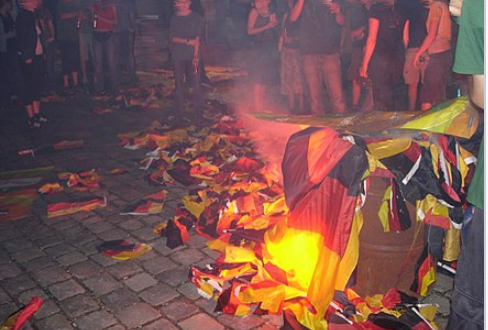A Venezuelan judge has banned two daily newspapers from publishing “images of violent content, guns, physical aggression, bloody scenes and naked cadavers” and fined both outlets the equivalent of 1 percent of their 2009 earnings, the Committee to Protect Journalists reported.
The ruling stemmed from the publication of a front-page, archival photograph in El Nacional on August 13, 2010, that showed corpses piled up in a local morgue as part of a news report on rising crime in Venezuela. The image was republished by Tal Cual three days later in an act of solidarity as authorities moved to crack down on El Nacional.
Judge [Betilde] Araque ruled that the images constituted a danger to the psychological well-being of minors and that the dailies had violated a Venezuelan law aimed at protecting children and adolescents. The ban on violent images only applies to the dailies, but the federal Attorney General’s office said in a statement on its website that it was looking into the possibility of extending the measure to other news outlets.
As Tal Cual editor Teodoro Petkoff observed in 2010: “Forget the hundreds of children who die from stray bullets, or the kids who go through the horror of seeing their parents or older siblings killed before their eyes. Their problem is the photograph.”
“The decision against El Nacional and Tal Cual clearly constitutes an act of censorship. We call on the Venezuelan courts to reverse it upon appeal,” said Carlos Lauría, CPJ’s senior program coordinator for the Americas. “The Venezuelan press should not be punished for reporting aggressively on issues of public interest.”
The case originally stemmed from complaints filed by two citizens who were described in some news accounts as members of a group that was sympathetic to the government. In the days after the publication of the image, a Venezuelan court issued a temporary injunction barring all print media from publishing violent images for one month.
Another Venezuelan newspaper, El Universal, observed drily:
The ban could conflict with Article 57 of the Constitution, which states: “Everyone has the right to freely express their thoughts, ideas or opinions orally, in writing or by any other form of expression, and to use any means of communication and dissemination, without the establishment of censorship.”
As we reported in 2007, a writer for Tal Cual and its publisher were fined for a mild satirical article in the form of a letter to Hugo Chavez’s young daughter.



